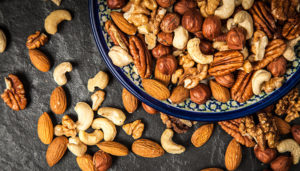

Photograph: Voisin/Phanie/REX Shutterstock
FDA expands list of hand sanitizers to avoid due to methanol risk with more being recommended for recall
The Food and Drug Administration has expanded the number of hand sanitizers to avoid because they may contain methanol, a toxic substance when absorbed through skin or ingested.
The FDA now lists on a chart 59 varieties of hand sanitizer that should be avoided, some which have already been recalled, and other products being recommended for recalls as they may contain the potentially fatal ingredient.
All of the products in the FDA’s latest methanol update appear to have been produced in Mexico… (Continue to full article)
 Big Pharma Trade Group Blasted as ‘Morally Bankrupt’ for Suing to Block Minnesota Insulin Affordability Law
Big Pharma Trade Group Blasted as ‘Morally Bankrupt’ for Suing to Block Minnesota Insulin Affordability Law
A Big Pharma trade group is under fire for filing a federal lawsuit late Tuesday against Minnesota’s Alec Smith Insulin Affordability Act mere hours before it took effect.
State Sen. Matt Little, a member of the Minnesota Democratic–Farmer–Labor Party (DFL), decried the move as “morally bankrupt” and “devoid of humanity.” In a Tuesday night tweet, Little also vowed: “I will spend my entire life fighting these soulless companies. No one should get sick or die from an inability to afford life-sustaining insulin.”
The law in question is named for an uninsured 26-year-old diabetic who died in 2017 of complications from rationing his insulin because he couldn’t afford the medicine and related supplies after aging off his mother’s health insurance… (Continue to full article)

Source: BartekSzewczyk/iStock/Getty Images Plus
Global Hydroxychloroquine Study To Resume After Positive Trial Results
The trial, known as COPCOV, was paused after another British study found the drugs to be ineffective in treating the virus, however the Medicines and Healthcare Products Regulatory Agency (MHRA) has now allowed the research to resume following positive COPCOV trial results.
“Participants will take the study drugs each day for a period of three months, and will be followed closely to see how well the drug is tolerated, whether they contract the virus, and if they do, whether they develop mild or more severe COVID-19,” according to Tropical Health Network… (Continue to full article)
 Biden Cancer Initiative paid execs generously while spending little on cancer
Biden Cancer Initiative paid execs generously while spending little on cancer
The Biden Cancer Initiative, a cancer charity set up by presidential hopeful Joe Biden, is coming under fire for the way it spent its funds after a new report revealed that far more money went to paying its top executives than they devoted to their stated goal of eradicating cancer. (BTW – for some unknown reason, the Biden Cancer Initiative has suspended operations. ~ Ed.)
According to tax forms from 2017 and 2018, the nonprofit raised and spent $4.8 million during its two years of operation. Just over $3 million of that was spent on salaries, compensation and other benefits… (Continue to full article)
 When you drink scotch every day, this is what happens to your body
When you drink scotch every day, this is what happens to your body
If you drink scotch every day, chances are you’re not doing it for the health benefits. More than likely you simply find indulging in a nightcap before bed to be an enjoyable experience. That’s not to say scotch is without healing properties, though. As the director general of the Scotch Whisky Association, Hugh Morison, pointed out to BBC News, the word “whisky” stems from the Gaelic term “uisge beatha,” meaning “water of life.” This is especially true of Scottish whisky… (Continue to full article)
 Drug firm whistleblower wore wire to get evidence of cash bribes to doctors that led to $700m Novartis fine – and now stands to make $75m himself as reward
Drug firm whistleblower wore wire to get evidence of cash bribes to doctors that led to $700m Novartis fine – and now stands to make $75m himself as reward
A whistleblower who wore a wire to record evidence of doctors taking cash bribes from a Swiss pharmaceutical giant to prescribe their drugs could now be rewarded with $75 million, following the conclusion of a $628 million settlement.
Oswald Bilotta told NBC News how he thought he’d landed his dream job when he was employed as a sales representative for Novatis Pharmaceuticals in 1999, but quickly the proverbial rose-tinted lenses lost their gleam.
Just over a decade later, Bilotta would play a central role in a huge federal investigation into kickbacks at Novatis, wearing a wire for prosecutors to prove doctors were accepting cash bribes from the firm… (Continue to full article)
 Russian government recommended banning Wi-Fi and cell phones in primary schools
Russian government recommended banning Wi-Fi and cell phones in primary schools
On July 17th, 2020, the Russian Ministry of Health published recommendations to schools to ban the use of Wi-Fi and cell phones in elementary schools. The Medical Department of the Russian Academy of Sciences and the Russian National Committee on Non-Ionizing Radiation Protection, prepared the recommendations together with the Russian Ministry of Health.
The information was provided to Children’s Health Defense by Professor Oleg Grigoriev, Dr.Sc, PhD, the Chairman for the Russian National Committee on Non-Ionizing Radiation Protection. Professor Grigoriev has been outspoken about the harms of wireless technology and has been leading the recent initiatives by the Russian government to protect children from harm. He also tweeted about the news… (Continue to full article)
 Mercola: Conclusive proof — Masks do not inhibit viral spread
Mercola: Conclusive proof — Masks do not inhibit viral spread
Denis Rancourt, Ph.D., a former full professor of physics, is a researcher with the Ontario Civil Liberties Association in Canada. He’s held that volunteer position since 2014, which has given him the opportunity to dig into scientific issues that impact civil rights. He also did postdoctoral work in chemistry.
Here, we discuss the controversial topic of face masks. Should you wear one? When and where? Does it protect you or not? There’s a wide range of opinions on this even within the natural health community.
Early on in the COVID-19 pandemic, I endorsed the use of face masks based on the experience of some of the Eastern European countries. The rationale of it seemed to make sense at the time. Since then, however, I’ve started to question their use… (Continue to full article)

Multiple countries ban WIFI & cell phones around schools, young children & fetuses
Imagine what this will look like after 5G is all over the place. We’ll folks… It’s HERE! (Continue to full article)
 These 9 teas can help relieve stomach troubles
These 9 teas can help relieve stomach troubles
Stomach ache is one of those health complaints that can affect your mood for the rest of the day. If you’re having some tummy troubles, sipping hot tea can bring relief. But don’t drink just any tea – try these suggestions and say goodbye to your stomach woes in no time. 1. Black tea Many herbal teas are known to calm an… (Continue to full article)
 Planning to return to college this fall? You may be forced to get a flu shot, followed by a coronavirus shot
Planning to return to college this fall? You may be forced to get a flu shot, followed by a coronavirus shot
As many expected, the self-appointed gods of “higher education” have taken it upon themselves to dictate a whole new set of requirements for students intending to return back to class this fall. And one of them is that they be forcibly vaccinated both with the flu shot and any future vaccine that becomes available for the… (Continue to full article)
 FDA Targets Homeopathy Remedies
FDA Targets Homeopathy Remedies
The FDA has issued its first warnings against homeopathic medicines, and this is only the beginning. The FDA has sent warning letters to four companies that sell injectable homeopathic medicine because, in the agency’s view, injectable homeopathic medicines “can pose a serious risk to patient health.” This is following a bad guidance… (Continue to full article)



 There are four diet destructors, if curtailed in the United States, would not only save 35 percent of medical costs, but would also reduce major diseases by up to 35 percent. One of the most valuable medical discoveries was found by Dr. Linus Pauling, when he discovered the double helix bond carbon molecule in 1948. This is a chemical reaction that can occur in certain foods to prevent blood clotting. Blood clots are responsible for millions of strokes, heart attacks, diabetic eye and blood problems, plus “sticky blood” in the start and spread of cancer.
There are four diet destructors, if curtailed in the United States, would not only save 35 percent of medical costs, but would also reduce major diseases by up to 35 percent. One of the most valuable medical discoveries was found by Dr. Linus Pauling, when he discovered the double helix bond carbon molecule in 1948. This is a chemical reaction that can occur in certain foods to prevent blood clotting. Blood clots are responsible for millions of strokes, heart attacks, diabetic eye and blood problems, plus “sticky blood” in the start and spread of cancer. 
 As most of us are already aware, Hydroxychloroquine has already taken the world by storm as a treatment against COVID-19. Every newspaper is talking about it, and all countries are requesting India to supply it. Now, a curious person might wonder why and how this chemical composition is so deeply entrenched in India, and is there any history behind it. Well, there is an interesting history behind it which goes all the way to the Indian king Tipu Sultan’s defeat.
As most of us are already aware, Hydroxychloroquine has already taken the world by storm as a treatment against COVID-19. Every newspaper is talking about it, and all countries are requesting India to supply it. Now, a curious person might wonder why and how this chemical composition is so deeply entrenched in India, and is there any history behind it. Well, there is an interesting history behind it which goes all the way to the Indian king Tipu Sultan’s defeat.  This important mineral contributes to a healthy energy-yielding metabolism, the reduction of tiredness and fatigue, cell division, electrolyte balance, the nervous system, normal muscle function and the maintenance of bones and teeth. Yet even though it is found in many common foods, a lot of us are no longer getting enough. In this article we discuss why magnesium is so important and how you can boost your intake.
This important mineral contributes to a healthy energy-yielding metabolism, the reduction of tiredness and fatigue, cell division, electrolyte balance, the nervous system, normal muscle function and the maintenance of bones and teeth. Yet even though it is found in many common foods, a lot of us are no longer getting enough. In this article we discuss why magnesium is so important and how you can boost your intake.  We all have been trained by the government and food industry to believe that processed vegetable oils, such as canola oil, are healthy, and natural saturated fats coming from butter, lard, or coconut oil increase the risk of cancer, cardiovascular diseases, and obesity.
We all have been trained by the government and food industry to believe that processed vegetable oils, such as canola oil, are healthy, and natural saturated fats coming from butter, lard, or coconut oil increase the risk of cancer, cardiovascular diseases, and obesity. New Canadian research has found that eating less than three portions of fruit and vegetables per day appears to be linked to a higher risk of having an anxiety disorder.
New Canadian research has found that eating less than three portions of fruit and vegetables per day appears to be linked to a higher risk of having an anxiety disorder.
 For 75 years, the American sick-care system has convinced nearly all Americans that chemotherapy is the only way to even attempt to beat cancer. It’s all been one big horrible lie. First off, we all have cancer cells in our body right now. The only way doctors ever even notice cancer cells is after they’ve multiplied uncontrollably into the billions and attacked some weakened tissue. By then, it’s been occurring for quite some time, and the chemical “gasoline” for that evil “cancer machine” is being pumped into the body daily, probably hourly, with the same “repeat offender” carcinogenic chemicals, which are found in our food and medicine.
For 75 years, the American sick-care system has convinced nearly all Americans that chemotherapy is the only way to even attempt to beat cancer. It’s all been one big horrible lie. First off, we all have cancer cells in our body right now. The only way doctors ever even notice cancer cells is after they’ve multiplied uncontrollably into the billions and attacked some weakened tissue. By then, it’s been occurring for quite some time, and the chemical “gasoline” for that evil “cancer machine” is being pumped into the body daily, probably hourly, with the same “repeat offender” carcinogenic chemicals, which are found in our food and medicine.  Can Food Act as Medicine? All You Need to Know& cell phones around schools, young children & fetuses
Can Food Act as Medicine? All You Need to Know& cell phones around schools, young children & fetuses Cut Sugar to Prevent Cancer
Cut Sugar to Prevent Cancer Obesity: America’s Self-inflicted Preexisting Condition
Obesity: America’s Self-inflicted Preexisting Condition Elderberries Block Flu Virus From Attaching To and Entering Human Cells
Elderberries Block Flu Virus From Attaching To and Entering Human Cells Butter Nutrition 101: Is Butter Bad for You or Is Butter Good for You?
Butter Nutrition 101: Is Butter Bad for You or Is Butter Good for You? Asparagus is a highly alkaline food scrubbing out the bladder, kidneys, and protects liver health
Asparagus is a highly alkaline food scrubbing out the bladder, kidneys, and protects liver health
 A recently published study out of Canada showed that the total amount of cancer rates that can be linked to lifestyle and environmental factors is substantial, at almost 41 percent.
A recently published study out of Canada showed that the total amount of cancer rates that can be linked to lifestyle and environmental factors is substantial, at almost 41 percent.  It is becoming increasingly clear that food is some of the best medicine that exists.
It is becoming increasingly clear that food is some of the best medicine that exists.